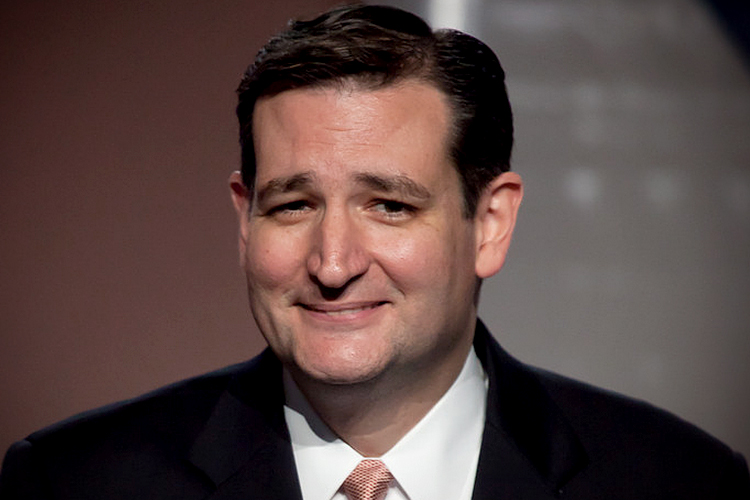Ted Cruz has sharp elbows. He’s already managed to annoy several senators, including Republicans, and sparked what appears to be a full-on feud with Sen. John McCain. He also wants to be president of the United States.
Do those things go together? The political scientist John Sides thinks it’s going to be a problem:
[T]o be the Republican nominee, he’ll need the support of his Republican colleagues. The 2012 election once again showed—and despite some skepticism—that it is very hard to win the nomination unless you’re preferred by a substantial chunk, if not the vast majority of, your party’s leaders (as was Romney). Which is to say, it pays to be nice to your colleagues. It’s no guarantee, of course: junior Senator Hillary Clinton kept her head down and played nice, and lost the nomination. John McCain often irritated his fellow Republicans, but still mustered enough support within the party to win the nomination.
But political scientist Dave Hopkins isn’t so sure: “Don’t think this is the problem for Cruz that John does. McCain bugged Sen colleagues/leaders too; still won ’08 nom.”
They’re both right … but Dave is more right than John is.
It’s absolutely true, as Sides, the co-author of “The Gamble: Choice and Chance in the 2012 Presidential Election,” says, that party leaders are important to winning presidential nominations.
But U.S. political parties are large, and have many leaders, only a small subset of whom are members of Congress. There are governors, interest group leaders, activists, fundraisers and more. And there’s a long history, from Lyndon Johnson in 1960 through Dick Gephardt in 2004, of candidates being overrated because they had strong support within Congress – just as there’s a long history, from John Kennedy through John McCain, of candidates doing well with less-than-stellar Hill reputations (not just nomination winners; John Edwards wasn’t exactly a legislative dynamo but did just fine in 2004; Gary Hart had few supporters from the Senate and almost won in 1984).
To back up a bit: There are really two tests for whether someone is a viable candidate for a presidential nomination. The candidate needs to have conventional qualifications, and with (by then) four years in the Senate, Cruz qualifies, albeit just barely. The candidate must also be within the mainstream of his or her party when it comes to public policy. This is where Cruz is a solid step ahead of his fellow Tea Partying Sen. Rand Paul – as far as we know so far, Cruz doesn’t have major issue areas, such as Paul has with foreign policy, where there are important differences between him and key party groups.
Where Cruz stands out, and where he gets in trouble with his Senate colleagues, is in his willingness to use demagogic rhetoric (such as his McCarthyite and uncollegial attacks on Chuck Hagel) and his frequent attacks on “Republican leaders” or the “Republican establishment.” Many members of Congress may see themselves as targets of those attacks.
But outside of those chambers (and even to some extent within them), there’s a curious phenomenon in both parties, and usefully for Cruz it’s probably even stronger in the Republican Party than it is among Democrats: people who by any objective standards function as party leaders but nevertheless think of themselves as outsiders and rebels.
Indeed, in U.S. politics, hardly anyone thinks of themselves as the “establishment” – that’s always those other folks. Tea Party activists hardly think of themselves as “Republican leaders” no matter how long they have been active within GOP politics, and how many battles they’ve won. Neither do most talk show hosts – my guess is that Rush Limbaugh would throw a fit if you called him a longtime leader of the Republican establishment that he regularly mocks. Even within government, my guess is that there are a fair number of staffers in Barack Obama’s White House, even some who previously served with Bill Clinton, who think of themselves as infiltrating the establishment, not embodying it – and I’m sure the same was true during George W. Bush’s presidency, just as it was during Richard Nixon’s and Ronald Reagan’s presidencies.
All of which means that even if those who actually have to work with Ted Cruz may not like him, there are still plenty of party leaders who may interpret his attacks on “party leaders” as those of an ally ready to help them storm the gates, rather than as a threat to their insider status.
None of which means that Cruz is a sure thing, of course. It’s very early, and it’s extremely difficult to predict how any of the candidates will navigate the process, or even what strengths and weaknesses they will reveal along the way. Cruz surely won’t be the only candidate vying for the support of Tea Party and other extreme conservative party elites. At this point, he’s a potentially viable candidate, no more.
But feuding with John McCain, and having other Republican senators uncomfortable with his excesses? That’s not going to be what stops him.


